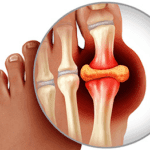Impact of Chronic Illness on Bone Health
Why Bone Health Matters
Though we often take our bones for granted until injury occurs, they are vital to nearly every aspect of human activity. Bones provide structure and support, protect essential organs, and enable movement by acting as levers for muscle activity.
Beyond these visible roles, bones have critical internal functions:
- Calcium Reserve: Bones store calcium, helping to regulate blood calcium levels.
- Blood Cell Production: Bone marrow continuously produces new blood cells.
- Hearing Support: Bones in the ear turn sound waves into nerve signals.
Given their importance, maintaining bone health is essential. However, chronic illnesses and certain treatments can negatively affect bone strength, increasing the risk of fractures and osteoporosis.
The Inner Workings of Bone
Bones are dynamic, living tissues composed of three key components:
- Cells: Maintain and repair the bone structure.
- Protein Fibers (Collagen): Strengthen bones and reduce brittleness.
- Minerals (Hydroxyapatite): Provide hardness and durability.
Bones adapt to physical demands. When we engage in activities like running or lifting, bone cells build stronger bones to withstand stress. Conversely, inactivity signals bone cells to reabsorb minerals, weakening the structure.
Despite their resilience, some chronic illnesses directly or indirectly harm bones, increasing the likelihood of fractures and osteoporosis.
Chronic Illnesses That Directly Affect Bone Health
- Kidney Disease
Chronic kidney disease (CKD), often caused by diabetes, high blood pressure, or aging, significantly impacts bone health. Failing kidneys disrupt calcium and phosphate balance, causing the body to draw these minerals from the bones, reducing their density and making them brittle.- Prevention Tips: Optimize kidney health by staying hydrated, managing diabetes and blood pressure, and avoiding harmful medications.
- Liver Disease
Chronic liver conditions, such as cirrhosis or hepatitis C, often lead to bone density loss. This occurs due to poor absorption of Vitamin D and other fat-soluble vitamins, resulting in less active bone cells and fragile, porous bone structures.- Impact: Increased risk of osteoporosis and fractures.
Understanding the connection between chronic illnesses and bone health is crucial to preventing complications and maintaining strength and resilience.
Chronic Illness and Its Effects on Bone Health
Chronic Illnesses That Affect Bone Health
- Bowel Disease
Conditions like celiac disease and inflammatory bowel disease (Crohn’s disease, ulcerative colitis) can weaken bones significantly. Up to 42% of individuals with inflammatory bowel disease have osteoporosis, increasing their risk of fractures. Factors contributing to this include:- Poor absorption of calcium and Vitamin D due to intestinal inflammation.
- Reduced nutrient absorption following bowel surgery.
- Chronic inflammation, which impairs bone cell function.
- Long-term steroid use, which accelerates bone loss.
- HIV/AIDS
People with HIV are living longer thanks to effective treatments, but prolonged HIV infection often leads to poor bone health. Contributing factors include:- Low testosterone levels.
- Co-infections like hepatitis C.
- Lifestyle factors such as smoking and inactivity.
- Bone-density-reducing side effects of HIV medications.
- Diabetes
Both type 1 and type 2 diabetes can weaken bones despite normal bone density results on scans. High blood sugar damages nerves and blood vessels, affecting bone strength and increasing fracture risk. Controlling blood sugar through diet, exercise, and medications is crucial to protecting bones. - Cancer
Bone health is affected in several ways by cancer:- Cancer originating in bones or spreading (metastasizing) from other organs can damage bone tissue.
- Cancer treatments like chemotherapy and radiation can weaken bones, increasing fracture risk.
Other Factors That Impact Bone Health
- Pediatric Inactivity
Inactivity during childhood, often due to excessive screen time or reduced physical education, can result in lower peak bone density. Children who do not develop strong bones early may never fully recover their potential bone mass later in life, even with increased activity. Consistent physical activity can help at any age. - Medications That Harm Bone Health
Long-term use of certain medications may negatively impact bones:- Glucocorticoids (e.g., prednisone): Prolonged use weakens bones by disrupting the balance of bone production and absorption.
- Proton Pump Inhibitors (PPIs): Reduce stomach acid, impairing calcium absorption and increasing fracture risk.
- Antidepressants (SSRIs and tricyclics): May increase bone fragility.
- Antiseizure Medications: Cause rapid breakdown of Vitamin D, leading to low calcium absorption.
- Depot Medroxyprogesterone Acetate: Long-term use of this contraceptive method is linked to bone density loss.
Steps to Keep Bones Healthy
- Nutrition and Exercise
- Maintain a diet rich in calcium and Vitamin D.
- Engage in regular weight-bearing exercises to strengthen bones.
- Quit Smoking
- Smoking weakens bones and accelerates bone loss.
- Monitor Chronic Illness and Medications
- Work with your doctor to manage chronic conditions in ways that minimize bone damage.
- Discuss alternatives for medications with harmful effects on bones.
- Gradual Recovery from Immobility
- After periods of inactivity, such as hospitalization or surgery, resume physical activity gradually. Strengthening bones takes time but is vital for long-term health.
By adopting these strategies, individuals can better manage the impact of chronic illnesses on bone health and maintain a strong skeletal system.





